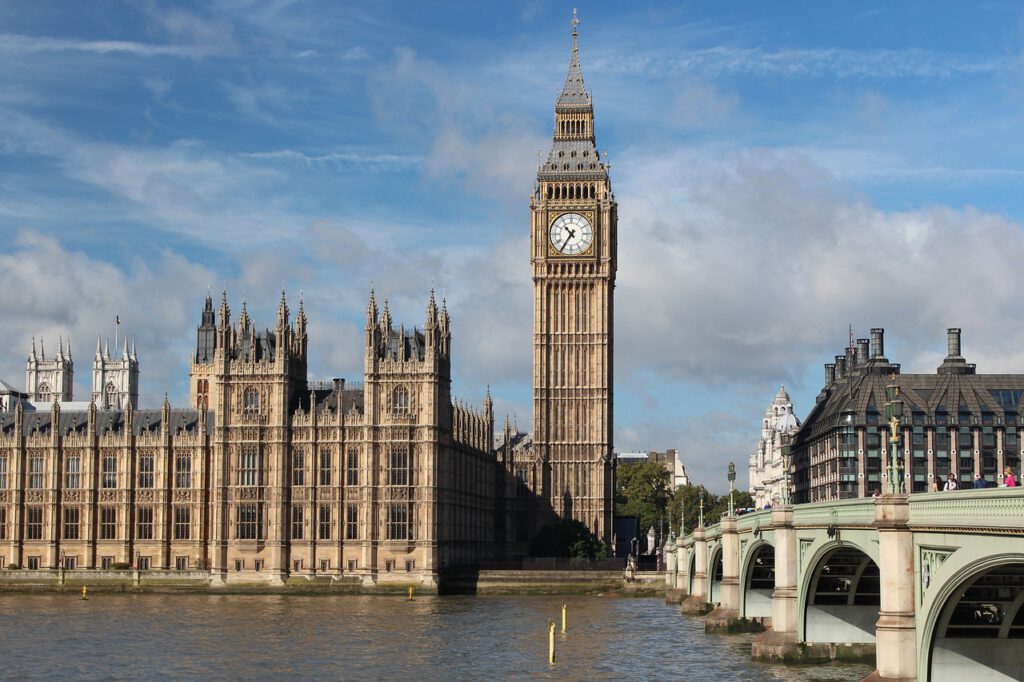
Contents
AML/CTF in the United Kingdom (UK)
“God Save the King.”
The United Kingdom (UK) stands at the forefront of the global fight against money laundering and terrorist financing. With a robust legal framework and a multi-layered regulatory approach, the UK’s AML and CTF efforts are designed to protect the integrity of its financial system and contribute to international security. This article delves into the UK’s AML and CTF landscape, highlighting key regulations, supervisory authorities, and sources of practical guidance for compliance.
The Evolution of AML Regulations in the UK
The UK’s journey toward stringent AML measures began in 1994 with the legal requirement for financial institutions to identify their customers. This foundational step paved the way for the Money Laundering Regulations (ML Regulations) introduced on December 15, 2007. The ML Regulations, aligned with Financial Action Task Force (FATF) standards, marked a significant milestone in the UK’s AML efforts, expanding the scope of oversight to encompass a wide range of financial and non-financial sectors.
In 2012, the Money Laundering (Amendment) Regulations extended these measures further, incorporating estate agents and enhancing information-sharing mechanisms among supervisory bodies. These amendments also detailed HM Revenue & Customs (HMRC)’s criteria for determining the “fit and proper” status of individuals within certain regulated sectors, underscoring the UK’s commitment to rigorous AML standards.
Regulatory and Supervisory Landscape
The Financial Conduct Authority (FCA) is the primary regulator for AML controls within the UK’s financial sector, overseeing banks and financial services. The FCA’s Financial Crime Guide for Firms offers invaluable insights into best practices and regulatory expectations, serving as a crucial resource for institutions under its purview.
Beyond the financial sector, HMRC supervises a variety of non-financial entities, including money service businesses not covered by the FCA, high-value dealers, and estate agency businesses. The Gambling Commission oversees the gambling sector, implementing AML controls to mitigate risks associated with commercial gambling.
Professional bodies, such as the Solicitors Regulation Authority (SRA) and the Bar Standards Board (BSB), regulate legal professionals in England and Wales, ensuring adherence to AML and CTF regulations within the legal sector.
Practical Guidance for Compliance
For entities navigating the UK’s AML and CTF regulatory environment, several key sources of practical guidance are available. The Joint Money Laundering Steering Group (JMLSG) offers sector-specific guidance, while the ICAEW and The Law Society provide resources tailored to accountancy and legal services, respectively. Additionally, the Gambling Commission’s guidance for casinos emphasizes the importance of a risk-based approach to preventing money laundering and terrorist financing.
Sources:
- FATF “United Kingdom” https://www.fatf-gafi.org/content/fatf-gafi/en/countries/detail/united-kingdom.html
- HM Treasury
- HM Treasury “Anti money laundering supervision: detailed information” https://www.gov.uk/government/collections/anti-money-laundering-supervision-detailed-information
- HM Treasury “National risk assessment of money laundering and terrorist financing 2020” https://www.gov.uk/government/publications/national-risk-assessment-of-money-laundering-and-terrorist-financing-2020
- HM Treasury “Anti-money laundering and countering the financing of terrorism: Supervision Report” 2020-22 https://www.gov.uk/government/publications/anti-money-laundering-and-countering-the-financing-of-terrorism-supervision-report-2020-22
- Money Laundering Regulations 2017: consultation https://www.gov.uk/government/consultations/money-laundering-regulations-2017/money-laundering-regulations-2017
- Money Laundering Advisory Notice: High Risk Third Countries https://www.gov.uk/government/publications/money-laundering-advisory-notice-high-risk-third-countries–2
- FCA
- FCA “Money Laundering Regulations” https://www.fca.org.uk/firms/financial-crime/money-laundering-regulations
- FCA “Money laundering and terrorist financing” https://www.fca.org.uk/firms/financial-crime/money-laundering-terrorist-financing
- FCA FCA Handbook
- FCA SYSC 6.3 Financial crime
- FCA EG 19.14 The Money Laundering, Terrorist Financing and Transfer of Funds (Information on the Payer) Regulations 2017
- FCA EG 19.15 The conduct of investigations under the Money Laundering Regulations
- FCA FCG 3 Money laundering and terrorist financing
- FCA FCTR 3 Review of private banks’ anti-money laundering systems and controls (2007)
- FCA FCTR 4 Automated Anti-Money Laundering Transaction Monitoring Systems (2007)
- FCA FCTR 5 Review of firms’ implementation of a risk-based approach to anti-money laundering (AML) (2008)
- FCA FCTR 16 How small banks manage money laundering and sanctions risk – update (2014)
- FCA Anti-money laundering controls
- FCA Money laundering reporting function
- FCA Money laundering
- FCA Money Laundering Regulations 2007 (SI 2007/2157)
- FCA Money Laundering, Terrorist Financing and Transfer of Funds (Information on the Payer) Regulations 2017 (SI 2017/692)
- FCA Joint Money Laundering Steering Group
- FCA Money laundering reporting officers
- UK Joint Money Laundering Steering Group (JMLSG)
- HM Government
- The Money Laundering and Terrorist Financing (High-Risk Countries) (Amendment) Regulations 2024
- The Money Laundering and Terrorist Financing (Amendment) Regulations 2023
- The Economic Crime (Anti-Money Laundering) Levy (Amendment) Regulations 2023
- The Money Laundering and Terrorist Financing (Amendment) (No. 2) Regulations 2022
- The Economic Crime (Anti-Money Laundering) Levy Regulations 2022
- The Money Laundering and Terrorist Financing (Amendment) Regulations 2022
- The Sanctions and Anti-Money Laundering Act 2018 (Commencement No. 3) Regulations 2021
- The Sanctions and Anti-Money Laundering Act 2018 (Commencement No. 2) Regulations 2020
- The Money Laundering and Terrorist Financing (Amendment) (EU Exit) Regulations 2020
- The Money Laundering and Terrorist Financing (Amendment) Regulations 2019
- The Money Laundering and Transfer of Funds (Information) (Amendment) (EU Exit) Regulations 2019
- The Money Laundering and Terrorist Financing (Miscellaneous Amendments) Regulations 2018
- The Sanctions and Anti-Money Laundering Act 2018 (Commencement No. 1) Regulations 2018
- The Oversight of Professional Body Anti-Money Laundering and Counter Terrorist Financing Supervision Regulations 2017
- The Money Laundering, Terrorist Financing and Transfer of Funds (Information on the Payer) Regulations 2017